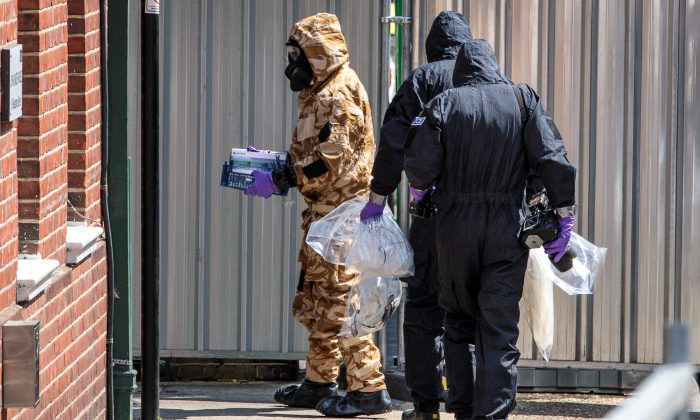Inquiry Reveals Enough Novichok in Perfume Bottle to Kill Thousands of People
The inquiry will investigate whether prevention measures could have avoided Dawn Sturgess’s poisoning and if Sergei Skripal had been adequately shielded from attack.
An inquiry revealed that the Novichok in the perfume bottle that led to Dawn Sturgess’s death had enough nerve agent to kill thousands of people.
The Dawn Sturgess Inquiry commenced on Monday at The Guildhall in Salisbury to examine how the 44-year-old woman lost her life after being exposed to the chemical weapon in a discarded perfume bottle in Amesbury, Wiltshire, in July 2018.
Her demise followed the attempted murder of former Russian agent Sergei Skripal and his daughter Yulia in Salisbury in March of the same year after they were exposed to the same nerve agent.
British authorities suspected that members of Russian military intelligence (the GRU) had applied Novichok to the doorknob of Sergei Skripal’s residence.
An international police warrant was issued for three Russian men—Aleksandr Mishkin, Anatoly Chepiga, and Denis Sergeev—believed to be connected to the incidents, but they are unlikely to face trial due to restrictions on the extradition of Russian citizens under the country’s constitution.
Caught in the Crossfire
The Skripals, along with former police officer Nick Bailey, who was also poisoned after entering the Skripals’ home first, survived the attack, as did Dawn Sturgess’s boyfriend, Charlie Rowley, who unknowingly gave her the perfume bottle he had discovered.
Andrew O’Connor, KC, counsel to the inquiry, stated that Sturgess had a life distinct from politics and international relations, but her poisoning by Novichok raised the possibility that she was inadvertently involved in an illegal international assassination attempt.
“Whether that was indeed the case will be determined by you,” he informed the inquiry.
The counsel added that the shocking aspect of Sturgess’s death was her unwitting exposure to the poison through her skin.
O’Connor elaborated: “She was completely unaware of the mortal danger she faced because the highly toxic liquid was hidden inside a perfume bottle with care and intent.
“Additionally, evidence will suggest that this bottle, containing enough poison to kill thousands, must have been left in a public area earlier, posing a clear risk of discovery and transportation home by someone.”
Initial Hospital Treatment
The inquiry disclosed that Sturgess battled with alcohol dependence for a long time, but in the months leading to her death, she was described as content by her mother, who stated she had not seen her daughter that happy in a while.
O’Connor mentioned that the family seeks to understand why doctors at the hospital initially suspected a drug overdose when treating Sturgess.

Undated handout file photo issued by the Metropolitan Police of Dawn Sturgess, who was killed after coming into contact with the Russian-engineered nerve agent. Metropolitan Police/PA Wire
The legal counsel highlighted the family’s desire to discover if any errors in Sturgess’s treatment impacted her chances of survival.
“If there were shortcomings, were they significant?” he questioned.
Skripals
The inquiry will explore the preventability of Sturgess’s poisoning and the adequacy of precautions taken to safeguard Sergei Skripal.
The inquiry mentioned that Skripal, a former Russian paratrooper and member of the GRU, had been accused by Russia of spying for the UK, resulting in his conviction for espionage and a 13-year prison sentence in 2004.
He received a presidential pardon in 2010 and was part of a prisoner exchange that brought him to the UK.
O’Connor remarked that given his background in Russian military intelligence and residence in the UK, Skripal was in a vulnerable position.
Skripal himself acknowledged the risk during a 2018 police interview by stating that he possessed critical Russian intelligence that was dangerous for their special services, suggesting Putin’s involvement in the attack on him and Yulia.
O’Connor also noted that senior Foreign Office official Jonathan Allen stated that the government believes Putin authorized the operation.
Moscow denies these allegations.
The inquiry will proceed throughout the week in Salisbury, pausing for a week before resuming in London on Oct. 28.
Due to safety concerns, the Skripals will not provide testimony at the October inquiry.
PA Media contributed to this report.





